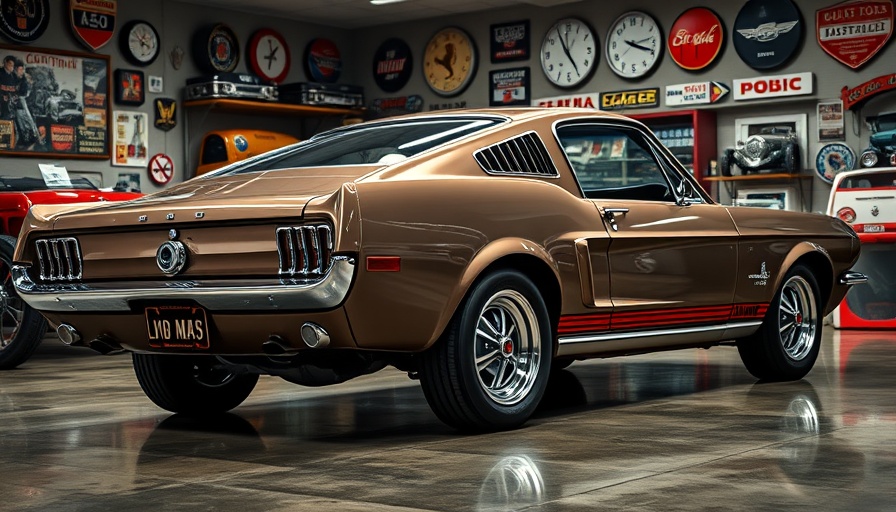
The Elephant in the Room: Copyright and Cultural Iconography
The recent ruling on the iconic Ford Mustang 'Eleanor' from the 2000 film Gone in 60 Seconds has sparked conversations about copyright laws as they pertain to vehicles that have become cultural icons. The Ninth Circuit Court of Appeals ruled that the Mustang design, as portrayed in the film, cannot be copyrighted. This decision highlights the complexities of intellectual property, especially regarding objects that hold significant cultural value.
Why This Ruling Matters to Dealerships and Car Enthusiasts
This ruling has implications that extend beyond legal doctrine; it opens a dialogue about the intersections of branding, marketing, and cultural representation. For dealership owners and GMs, understanding such rulings can influence how they market featured vehicles. Cars, much like personalities, can become brands themselves, shaping consumer choices and loyalty.
Iconic Cars: A Valuable Marketing Asset
The Mustang 'Eleanor' has been more than just a car—it has become an emblem of speed, style, and rebellion. Its portrayal in film has turned it into a statistics-driven asset: a vehicle that commands attention and stirs emotions. For dealerships, harnessing vehicles with storied pasts can enhance customer engagement. It’s about leveraging this emotional connection to sell cars rather than merely promoting features and specifications.
Beyond the Ruling: The Future of Iconic Vehicles in Media
As automotive culture evolves, the potential for iconic vehicles to appear in films can raise questions of copyright and fair use. Future productions may need to weave narratives around these vehicles that respect intellectual property while still capturing the audience's imagination. Dealerships looking toward the future should stay informed about changes in copyright law to better understand how their marketing strategies may evolve.
Practical Insights for Car Sales Professionals
What can car sales professionals learn from the Mustang 'Eleanor' ruling? First, consider the storied past of your inventory. Highlight those vehicles with rich histories and cultural relevance. Secondly, embrace storytelling as a marketing strategy. Each car has unique attributes; connect these to your customers' lives and interests. Lastly, stay updated on legal frameworks that could influence marketing techniques and customer engagement.
In navigating these complexities, dealership owners can foster stronger ties with their clientele while remaining cognizant of legal interpretations that could impact sales and marketing strategies.
 Add Row
Add Row  Add
Add 

 Add Row
Add Row  Add Element
Add Element 




Write A Comment